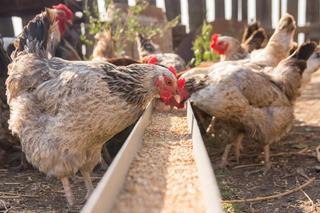Heat Stress
Tips for Keeping Quail Cool in the Summer


Quail and poultry are relatively hardy birds, but they require special summer care to stay healthy and comfortable. Keeping poultry cool in the summer is crucial for their health and productivity.
Here are several strategies to help ensure your poultry stays cool and safe during hot weather:
Temperature Control, Providing Adequate Shelter and Ventilation
Quail and poultry are sensitive to extreme heat. Living in Florida, I have taken extra precautions to keep my birds safe and cool. Provide plenty of shade and ensure their enclosure has good ventilation to prevent overheating.
If you are in an area with very high temperatures, consider adding fans or misters to help keep the air cooler around their cages or pens.
Make sure your poultry has access to shaded areas. This could be through natural shade like trees or man-made structures like canopies, tarps or shade cloth. Ensure the coop and cages have proper ventilation to allow hot air to escape and cool air to circulate.
Good ventilation helps reduce humidity, which can exacerbate heat stress. Installing fans and misters will help improve air circulation and lower temperature. Be careful not to create too much moisture, which can lead to health problems. Evaporative cooling is a more sophisticated cooling system that can help reduce the temperature in larger poultry operations.
Water Supply
Make sure quail and poultry have constant access to fresh, clean water. During hot weather, they drink more, so you should check their waterers more frequently.
Consider using waterers that prevent contamination and keep the water cooler. You can add ice cubes to the water to lower the water temperature.
Warm water can be a detriment to poultry, causing less water consumption, resulting in dehydration, lessening egg production, lethargy, and heat stress. Drinking warm water can make it harder for poultry to regulate their body temperature, especially during hot weather. Warm water can encourage the growth of bacteria and other pathogens, posing health risks.
To avoid these issues, quail and poultry must always get cooler water.
Dust Baths
Every bird I have encountered enjoys dust baths. Dust baths help quail and poultry stay clean and control parasites. Ensure they can bathe in a dry area with dust or river sand. It is not recommended to use play sand, as it can cause crop impaction.
Oyster shells are another option for a dust bath. The quail can eat the particles for calcium, and the rest can be used for enrichment.
Feeding
Poultry eat more in cooler weather and less when it’s hot. Maintain a balanced diet and ensure they always have access to feed.
Avoid feeding the birds high-energy foods that can increase body temperature. Supplement their diet with fresh greens or insects to keep them healthy and happy. If they are out on pasture, they can get added nutrients to their diet. Wetting down food helps with increased hydration as you are providing an additional source of moisture.
This also makes feed easier for poultry to eat and reduces dust. Some will even go as far as fermenting feed.
Make sure to be careful with the additional moisture as it can spoil faster, causing harmful effects if left out in the sun. If you choose to wet down food, make sure it’s consumed quickly to avoid spoilage and contamination.
Protection From Predators
Summertime often brings more predators. Make sure the quail and poultry’s enclosure is secure and has proper barriers to keep them safe. Regularly inspect the enclosure for holes or weak spots that might need reinforcement. Install proper fencing and secure locks on coop doors and windows.
Many farms add livestock guardian dogs to help with predator control.
Health Checks, Emergency Measures, Routine and Schedule
Monitor your quail and poultry for signs of heat stress, like panting, lethargy or spread-out wings. If you notice these signs, take immediate action to cool them down.
Regularly check externally for parasites like mites or lice, which can be more prevalent in warm weather. Consider adding electrolytes to their water to help with hydration and recovery from heat stress. Inspect the coop or pens regularly during the summer to ensure the birds are not overheating.
Have a plan in place in case of extreme heat or emergencies. This might include relocating the birds to a cooler area or providing additional cooling methods. Keep emergency supplies on hand, like extra water, fans and electrolytes in case you need to act quickly.
Minimizing stress by keeping a calm environment and monitoring social dynamics in the covey or flock will help prevent further issues. Maintain a consistent routine for feeding and watering but adjust the schedule to align with cooler times of the day. For example, feeding in the early morning and late evening can reduce heat-related stress.
Lighting and Activity
During the summer, when the days are longer, ensure the birds have a dark, quiet place to rest and sleep. If you use artificial lighting, ensure it’s set to mimic natural day-night cycles to avoid disrupting their behavior and laying patterns.
During extremely hot periods, limit excessive sunlight in the coop. Use curtains, shade cloths, or blinds to reduce heat build-up and provide a cooler environment.
Poultry and quail need to have ample space to roam and exercise. Overcrowding can lead to stress and increased heat in the coop or cage. During hot weather, allow your poultry to be most active in the cooler parts of the day, such as early morning and late evening. During peak heat, encourage the birds to rest in shaded or cooler areas. Limit strenuous activities during the hottest parts of the day to prevent heat stress. If you have more active species of poultry, make sure they can rest and cool down as needed.
By utilizing some of these strategies to keep your quail and poultry cooler during the summertime, you can effectively manage poultry by keeping them cool, hydrated and healthy while minimizing stress and other heat-related risks.
About the Author
Alexandra Doss has been working with poultry for over 18 years. Known as the Quail Lady, as Coturnix quail was her first specialty on her selective breeding operation, Stellar Game Birds, Poultry, Waterfowl LLC in Florida. She has written two books on Coturnix husbandry. She and her husband focus on breeding heritage animals and breed preservation.
Tags:Chicken Chatter

Acreage Life is part of the Catalyst Communications Network publication family.















